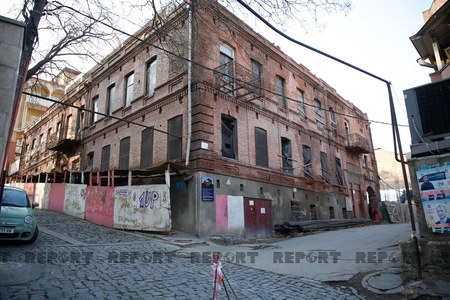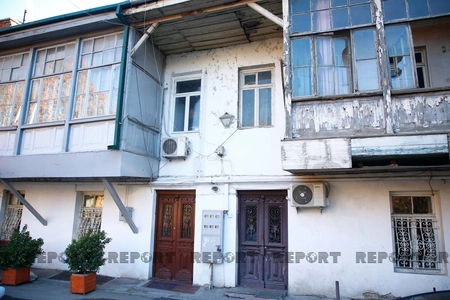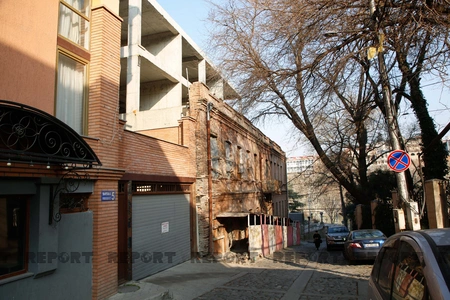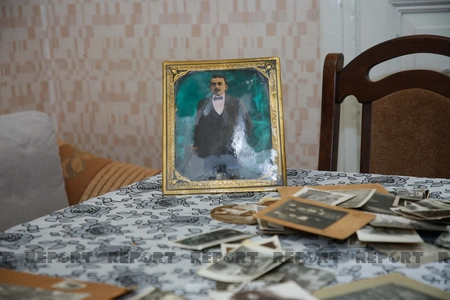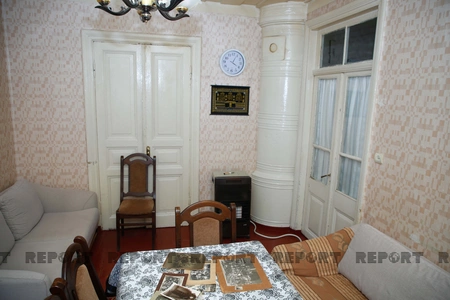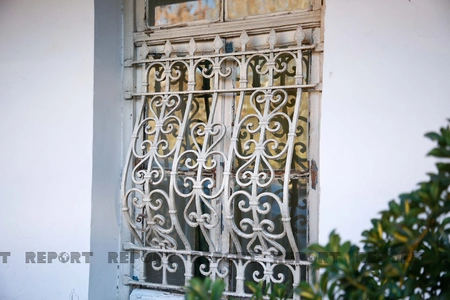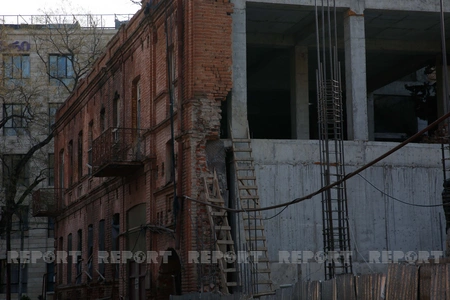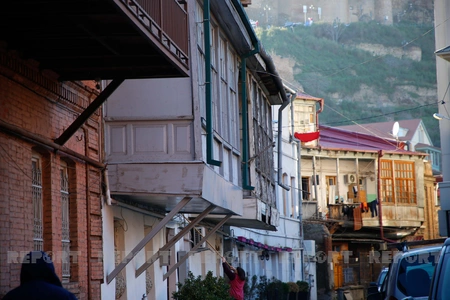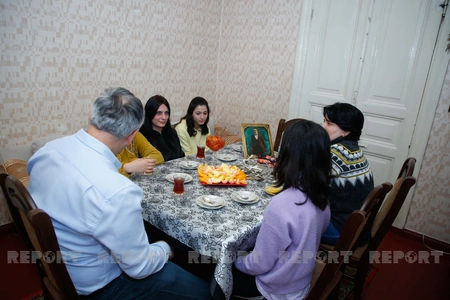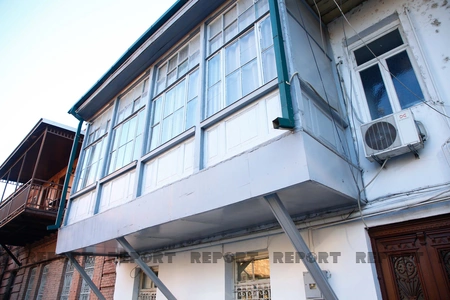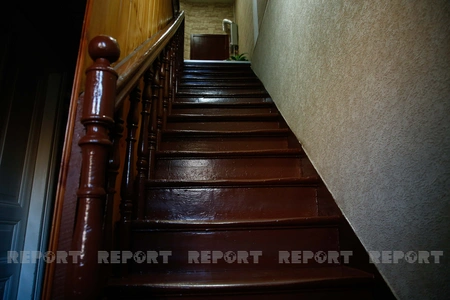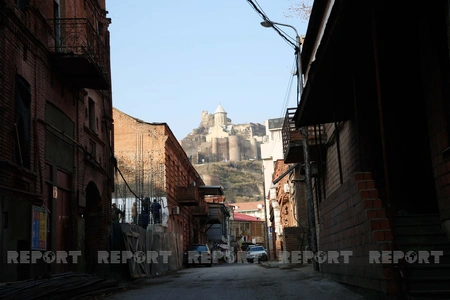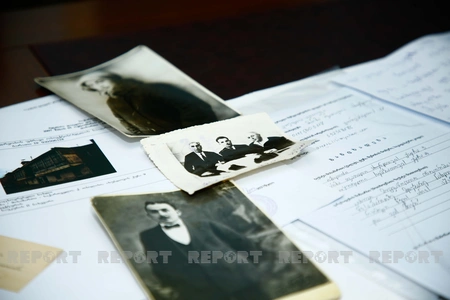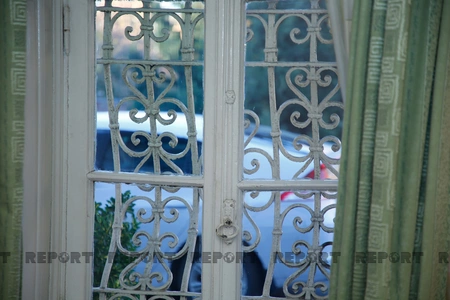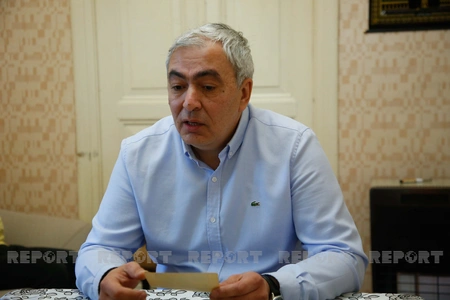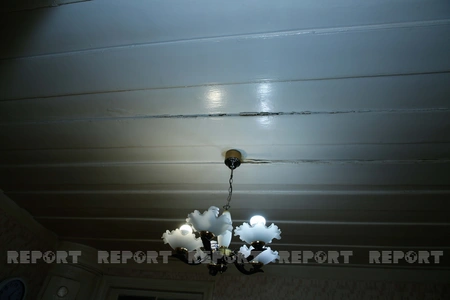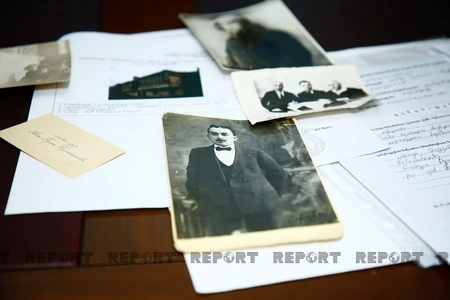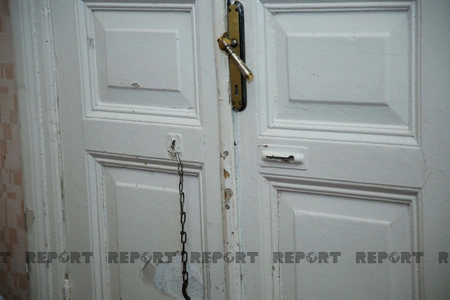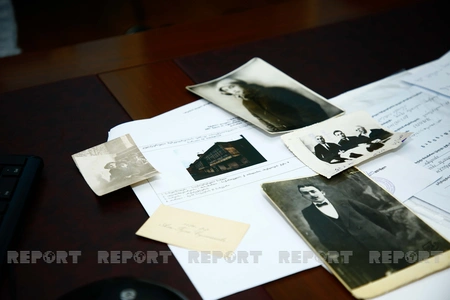House where Rashid Behbudov lived found in Tbilisi - RESEARCH
- 21 February, 2022
- 09:07
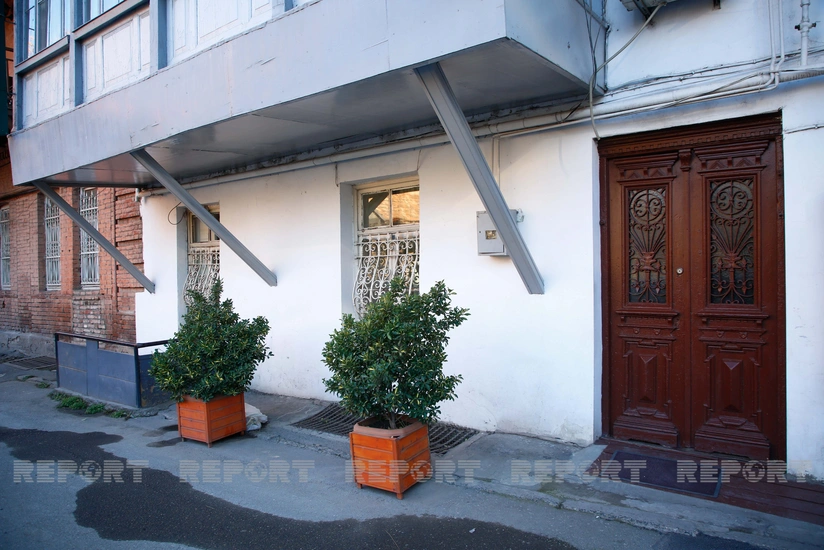
The memory of the People's Artist of Azerbaijan and the USSR Rashid Behbudov in his hometown of Tbilisi has not yet been immortalized worthy of his name, art, and fame. However, the recently discovered place can contribute to creating a memorial museum in the hometown of the great artist - to perpetuate his name. This place is a home connected with Behbudov. For many years, different opinions have been voiced about the place where the artist was born and lived and whether it currently exists. The research conducted in recent years has shown that a house where the world-famous singer spent some time in Tbilisi has been preserved to this day.
The home was discovered by Leyla Aliyeva, director of the Museum of Azerbaijani culture named after Mirza Fatali Akhundov in Tbilisi, honored cultural worker of Georgia and Azerbaijan.
Employees of Report talked to Aliyeva, inquired in detail about the research into the house, and visited the center.
An Azerbaijani merchant gave shelter to a Shusha resident in Tbilisi
The director of the museum said that finding the home where a genius like Behbudov was born in Tbilisi was of great interest to her personally: "I talked to residents of the former Harpuh neighborhood to find this house. It turned out that the two-door and two-story property belonging to Aligulu Soltanov, a Tbilisi merchant mainly engaged in the carpet trade, is the house where the great singer was born. This house is located at 9 Mirza Fatali Akhundov Street. Soltanov's grandchildren and great-grandchildren live here now."
Aliyeva said that Soltanov (1888-1967) was a friend of the singer's father Majid Behbudov: "Majid Behbudov and Firuza Vakilova took refuge in Tbilisi (Georgia). Aligulu Soltanov gave the young family a room on the first floor of his property. Rashid was born in this house and lived here until he was a teenager. He also went to school from this house and then was admitted to a boarding school. Majid promoted Azerbaijani folk songs and mughams in Georgia. Ms. Firuza taught in Tbilisi (Georgia). After Firuza died in 1933, Majid could not stay in Tbilisi (Georgia) and went to Yerevan. He then returned to Gazakh, where his wife was buried."
Some studies have reported that Majid Behbudov was a married man before Firuza. Thus, Behbudov was forced to kidnap Firuza Vakilova, daughter of a wealthy nobleman, with whom he fell in love since he was a textile seller. Thus, Behbudov knew that her father would disagree with his daughter marrying a poor man. It is also said that Behbudov's love story is used in the plotline of our genius composer Uzeyir Hajibeyli's "The Cloth Peddler".
It is said that sometime after Majid and Firuza came to Tbilisi from Shusha and settled there, he brought his first family to this city and placed them in a separate house. That house no longer exists. It is said that Rashid Behbudov also lived in that house.
The house is a monument of Georgian cultural heritage
The investigation also revealed an exciting fact. Aliyeva addressed an appeal to the National Agency for Cultural Heritage Preservation of Georgia regarding the house. In response, the state body said that the house was built in the second half of the XIX century, and in 2007 it was given the status of a monument of cultural heritage.
At present, Soltanov's grandson Ilham Soltanov lives with his family in one half of the house. He said that his grandfather was a close friend of Majid Behbudov: "My grandfather and Majid had close friendships and exchanges. We are told that they met at a gathering in Tbilisi (Georgia). My grandfather gave a room on the first floor of his house to the Behbudovs and presented them with carpets. The two families lived very kindly as one family. My grandfather treated Majid's family with great respect and esteem, and he would not have sat at the dinner table without them."
Our interviewee also spoke about the house's history: "The two-story building was constructed for two brothers named Sumbatov. The house still has two separate doors and two glass balconies. Later, my grandfather bought this house. The purchase document still exists. My grandfather thought two detached houses would be inherited for his two daughters."
Victim of the repression, property owner settling in the basement
It is known from the conversation that Soltanov was repressed together with his wife, son, and 12-13-year-old granddaughter: "My grandfather was deported to Kazakhstan in 1950 and remained in exile for seven years. They were expelled from their homes in Marneuli at night. My grandfather's deportation was linked to his trade with Azerbaijan and Iran. My grandmother even burned the bills of exchange of the carpets for fear of the NKVD (People's Commissariat for Internal Affairs). After returning from exile, Aligulu had to live in the basement of his house for rent. It was a king-hit to my grandfather. He was later able to regain the right of ownership of the upper floor of the house."
At present, Georgian and Jewish families live on the first and second floors of the other part of the house. It is clear from the facade of this side that it is in a very dilapidated condition, the balcony and the windows are broken. Soltanov said that they support the transformation of the house into a museum. If negotiations are held to purchase it for this purpose, it is possible to persuade other building residents to relocate.
Rashid Behbudov's meeting with his "sister" in Tbilisi
Naila Soltanova, another granddaughter of Aligulu, shares her aunt Nabat's memories of Behbudov: "There was a two-year age difference between my aunt and Rashid. They grew up as brothers and sisters, and they were very friendly with each other. My aunt used to say that Rashid was very naughty in his childhood. Every time my aunt Nabat saw Behbudov on TV, she would shout 'my brother' with joy."
Soltanova remembers the moment she witnessed as a child as a pleasant memory:
"It was the early 1970s. I would be 6-7 years old. One day I saw aunt Nabat preparing with great enthusiasm. When asked where we were going, she said, 'We are going to a concert, my brother has come to Tbilisi.' At that time, Behbudov was giving a big concert at the Philharmonic. My aunt was sitting next to me in the hall and suddenly disappeared during the intermission. She could hardly enter the make-up room to see Rashid. My aunt Nabat was worried that Behbudov would not recognize her years later. But Behbudov remembered my aunt, said, 'Is it you, Nabat?' and hugged her."
"My grandmother used to say that she brought Rashid up"
At this point, the elder sister of my interlocutors, Matanat Soltanova, joins our conversation in an online format. According to her, the Soltanovs consider Behbudov the most native and dear family member.
Ms. Matanat can provide more information about her grandfather. Prior to his deportation, Aligulu Soltanov worked as the director of a cotton factory in Yevlakh and director of a dairy and cheese supply point in Marneuli (Masloprom). After returning from exile in 1957, he was forced to live in the basement of his house. While he was in exile, the rooms on his property were rented to several families: "My grandfather's settlement in the basement of the building he owned had a devastating effect on his health. He could no longer work. The excitement due to the injustice he faced paralyzed my grandfather. He was bedridden for seven years."
Soltanova remembers what her grandmother told her: "My grandmother used to say that she brought Rashid up. My aunt also grew up with Rashid. Rashid's older sister Najiba always visited us when she came to Tbilisi and stayed with us. She was born in Tbilisi (Georgia), she loved this city and visited it almost every year."
Behbudova was an actress at the Azerbaijani Theater in Tbilisi. After the theater's closure in 1947, she was admitted to the troupe of the present-day Azerbaijan State Academic Musical Theater. The actress, an honored artist of the Azerbaijan SSR, has created memorable images in our films.
The room where the Behbudovs lived was maintained
Concluding the conversation, we go to the room where Majid Behbudov lived with his family. The house owner, Soltanov, said that no major changes had been made to the room and that the windows, window sills, doors, ceiling, and wall stove had been preserved. As the building is a cultural heritage monument, it is forbidden to carry out any repair work on the facade. The Soltanovs only painted the facade of the building where the houses are located and renovated the chutes.
Akhundov Street is an attractive place for builders and investors due to its location in Tbilisi's historical and tourist part. This is evidenced by the new hotel building under construction at the intersection with Firdovsi Street. The construction project was agreed upon with the Architectural Service of the Tbilisi Mayor's Office in 2019, and a special permit was obtained. Now only the main and side facades of the building remain. Thus, according to Georgian legislation on the preservation of cultural heritage, the facades must be kept intact during the repair and reconstruction of historical buildings and architectural monuments.
Can the building be bought and turned into a museum?
Investors also reviewed the building where Behbudov spent some years of his life. Those who want to buy the building and its area have already expressed their interest. However, the Soltanovs can agree to sell the grandfather's property on one condition - that Azerbaijan purchases the building in order to turn it into a museum of Behbudov.
Director Aliyeva also initiated the establishment of a museum of Behbudov's memory in the building: "We want the building to become a center of Azerbaijani culture. The Azerbaijani government has always supported us in discovering, restoring, and reviving the centers of Azerbaijani culture in Georgia. I hope that the idea of creating a museum of Behbudov's memorial in the discovered building will be welcomed. The museum can become a place in Georgia that will promote Azerbaijani culture and the work of the famous singer."
There are reports that the world-famous singer lived in several houses in Tbilisi. In an interview with the 'Vecherny Tbilisi' newspaper in April 1988, entitled "Forgetting Georgia means forgetting myself!" he mentioned the place where they once lived in Tbilisi (Georgia): "My father, Majid Behbudov, originally from Karabakh, also liked to repeat this. He was a famous mugham singer. I remember very well that at that time in Peski - where I was awarded the title of "Honorary Citizen" of Tbilisi last year - a large crowd used to gather in our house. Our neighbors used to listen to my father's performance for hours." The area, formerly known as Peski, no longer exists but was flooded in Tbilisi. The current central Rike Park was built in the area in 2010.
Some local Azerbaijanis in Tbilisi say that Behbudov was not born in this house. They say that the singer lived in this house for some time. In any case, the house at 9 Akhundov Street is connected with the famous singer, and this is the most suitable and worthy place for the establishment of Behbudov's memorial museum. Because certain years of his life were spent here, the building is preserved as a monument of cultural heritage. The establishment of the memorial museum will also honor the memory of Aligulu Soltanov, who gave the Behbudovs a shelter in Tbilisi, Majid Behbudov, a famous Shusha singer from Georgia, and his wife, Firuza Vakilova, who played a very active role in the cultural and social life of Tbilisi.
Hoping to write news titled "Rashid Behbudov's memorial museum opened in Tbilisi" ...


